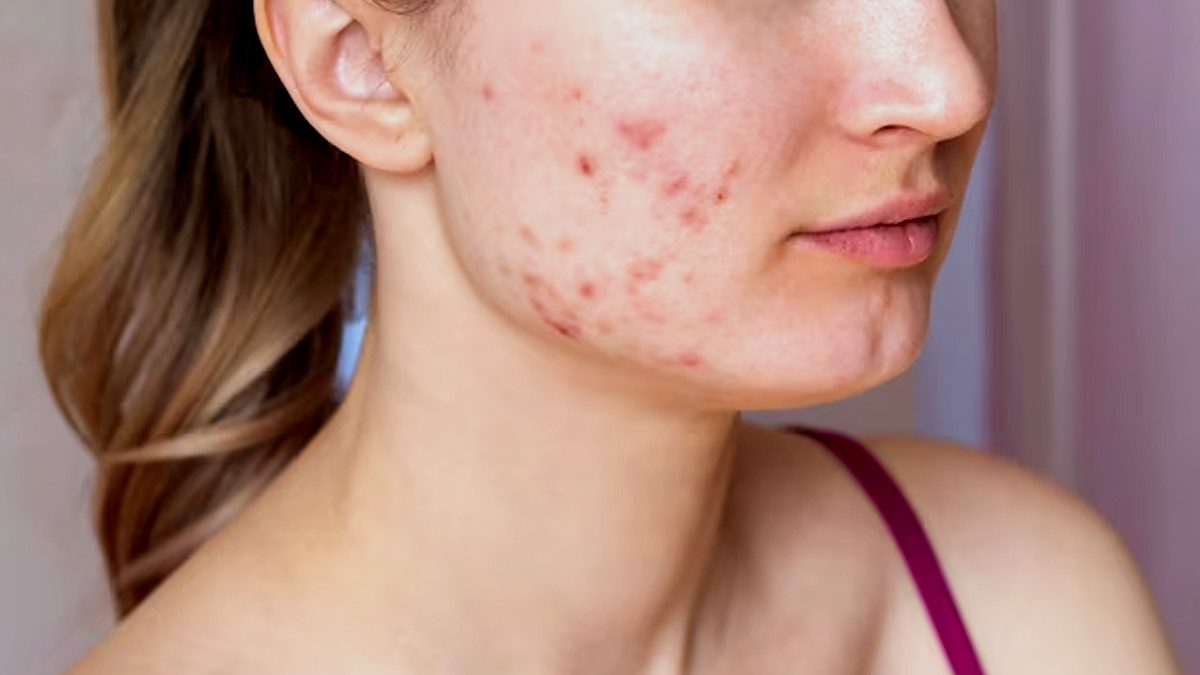
Acne, a widespread skin concern, typically emerges during the transitional phases of adolescence and young adulthood. In addition to its cosmetic impact, acne can also give rise to psychological challenges, such as diminished self-confidence, depression, anxiety, and obstacles in social interactions. Although it manifests externally on the skin, its root cause can be attributed to the intricate hormonal dynamics taking place within our bodies.
In this article, Sujata Pawar, Founder and CEO, Avni explains the pivotal role hormones play in the development of acne and offers comprehensive insights into its treatment options.
Role of Hormones in Acne Formation

Pawar said, “Acne development is influenced by hormones, particularly androgens which encompass testosterone. These hormones stimulate the sebaceous glands, responsible for sebum production, to increase their output.” While sebum helps keep the skin moisturised, excessive production can result in clogged pores, creating an ideal environment for acne-causing bacteria to thrive. Also, hormonal acne can be provoked by hormonal fluctuations experienced during menstruation and conditions, such as Polycystic Ovarian Syndrome (PCOS) or menopause.
Understanding Hormonal Acne: Types and Symptoms

There are different types of hormonal acne, including:
- Comedonal Acne: Blackheads and whiteheads are the characteristic manifestations of this type of acne. It develops when a buildup of sebum and dead skin cells clogs the hair follicles
- Inflammatory Acne: Inflammatory acne is characterised by the development of red and swollen pimples or pustules. These lesions arise due to the body’s inflammatory response triggered by the blockage of pores.
- Cystic Acne: Among the more severe variations, cystic acne involves the formation of large, painful, inflamed cysts located beneath the surface of the skin. These deep and persistent lesions can leave lasting scars if not effectively managed.
Symptoms Of Hormonal Acne
Pawar listed some common symptoms of hormonal acne as follows:
- Increased oiliness: Hormonal fluctuations can stimulate the sebaceous glands to produce excess oil, leading to greasy skin.
- Breakouts around the chin and jawline: Hormonal acne typically appears in the lower face region, specifically the chin and jawline. However, it can also occur on the cheeks, forehead, and back.
- Persistent acne: Hormonal acne tends to be more persistent and recurrent than other types of acne. Breakouts may worsen during certain times of the menstrual cycle.
- Painful and inflamed lesions: Inflammatory and cystic acne lesions can be tender to touch, red, and swollen.
- Scarring: Severe hormonal acne, such as cystic acne, has a higher risk of leaving behind acne scars.
Effective Strategies To Treat Hormonal Acne
Pawar highlighted, “Treating hormonal acne requires a comprehensive approach that addresses the underlying hormonal imbalances contributing to its development.”

Lifestyle Modifications
Making lifestyle adjustments can aid in regulating hormone levels and addressing issues related to acne. One particular hormone linked to acne is cortisol, which is associated with stress. Pawar said, “By implementing stress-reduction techniques like meditation or exercise, cortisol levels can be lowered. Achieving hormone balance can also be facilitated by adopting a nutritious diet that includes ample fruits, vegetables, and omega-3 fatty acids. Moreover, following appropriate skincare routines, such as gentle cleansing and avoiding pore-clogging products, can effectively minimise hormonal acne.”
Also Read: Tired Of Failed Acne Treatment? Expert Lists Reasons Why There Are No Results
Topical Treatments
Topical treatments are frequently employed to address hormonal acne. Pawar informed, “Key ingredients like benzoyl peroxide, salicylic acid, and retinoids are known for their ability to decrease inflammation, clear clogged pores, and regulate sebum production.” These treatments can be directly applied to the affected areas and come in different formulations such as cleansers, creams, gels, and spot treatments.
Oral Medications

Oral medications are sometimes recommended when topical treatments alone are not adequate for addressing hormonal acne. Pawar added, “Hormonal contraceptives, such as birth control pills, can aid in regulating hormone levels and specific androgens, thus alleviating acne symptoms. Anti-androgen medications, like spironolactone, work by inhibiting the effects of androgens and can be effective in managing hormonal acne. Also, antibiotics may be prescribed to decrease inflammation and control the growth of acne-causing bacteria.”
Seeking Professional Guidance for Hormonal Acne
It is advisable to consult a dermatologist for a thorough evaluation and a personalised treatment plan. A dermatologist can accurately diagnose hormonal acne, assess its severity, and recommend appropriate treatment options. They may combine different approaches, including lifestyle modifications, topical treatments, and oral medications, to address hormonal imbalances and manage acne effectively.
Disclaimer
The information in this article is shared by the expert and is for informational purposes only. Hence, we advise you to consult with your dermatologist for a treatment catered to your needs.







